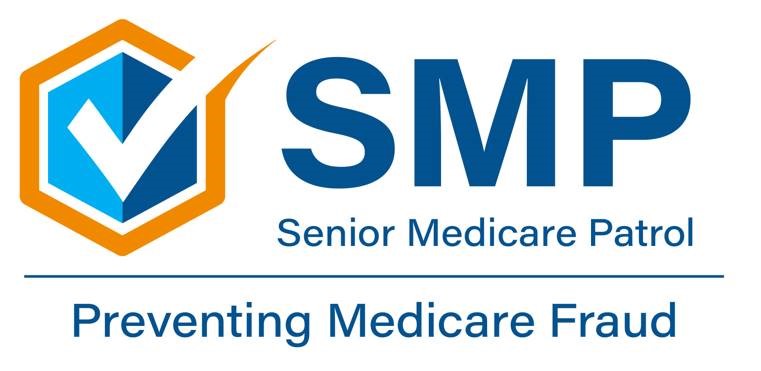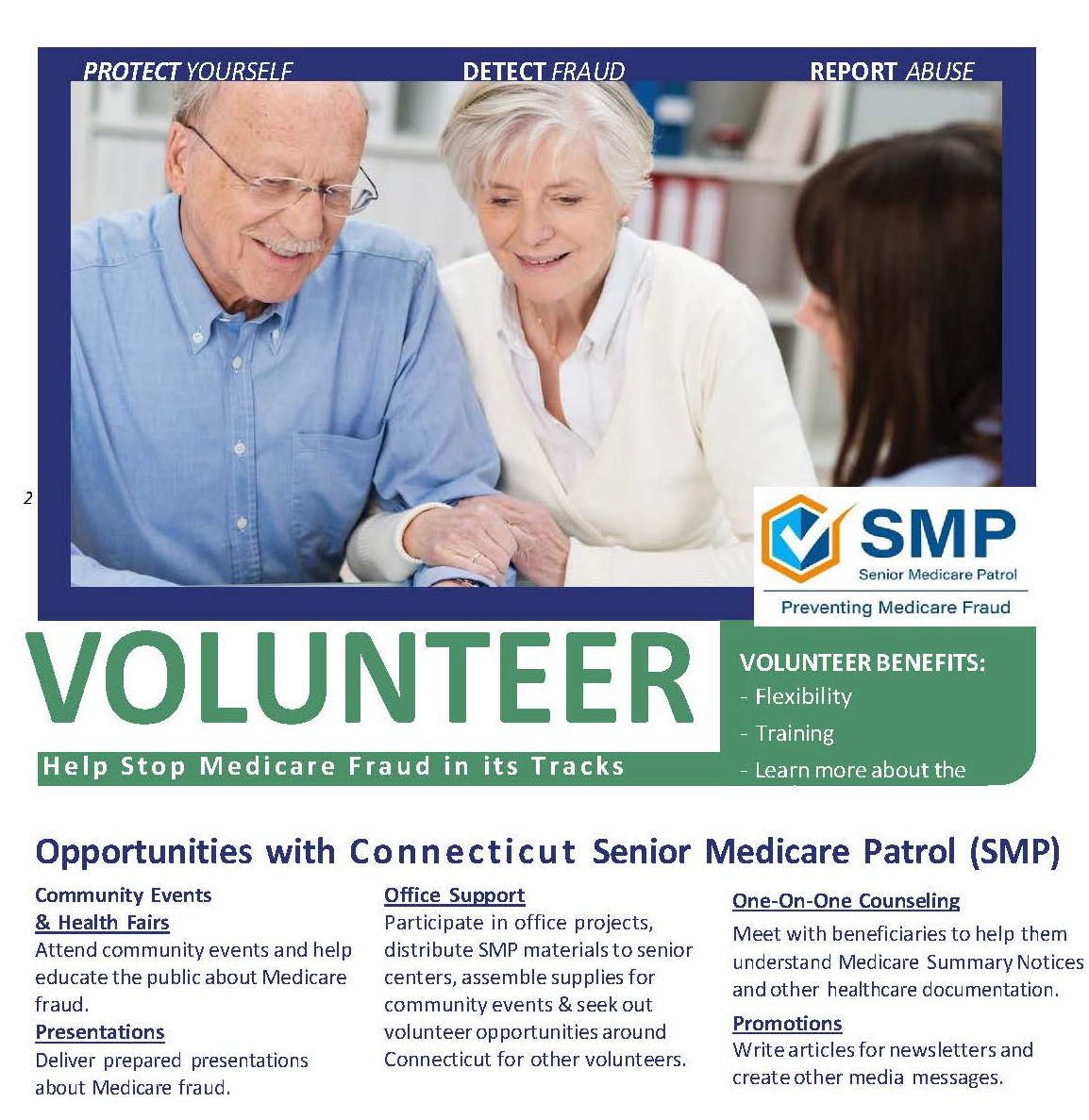Volunteering in the Community

The Senior Medicare Patrol (SMP) empowers and assists Medicare beneficiaries, their families, and caregivers to prevent, detect, and report health care fraud, errors and abuse through outreach, counseling and education. SMP Volunteers play an important role in addressing this fraud through presentations, outreach events, and one-on-one counseling. Training is offered at no cost to volunteers.
Contact us to find out more. Use our online contact form or call 203.785.8533 and choose option 4 for our Resource Center.

